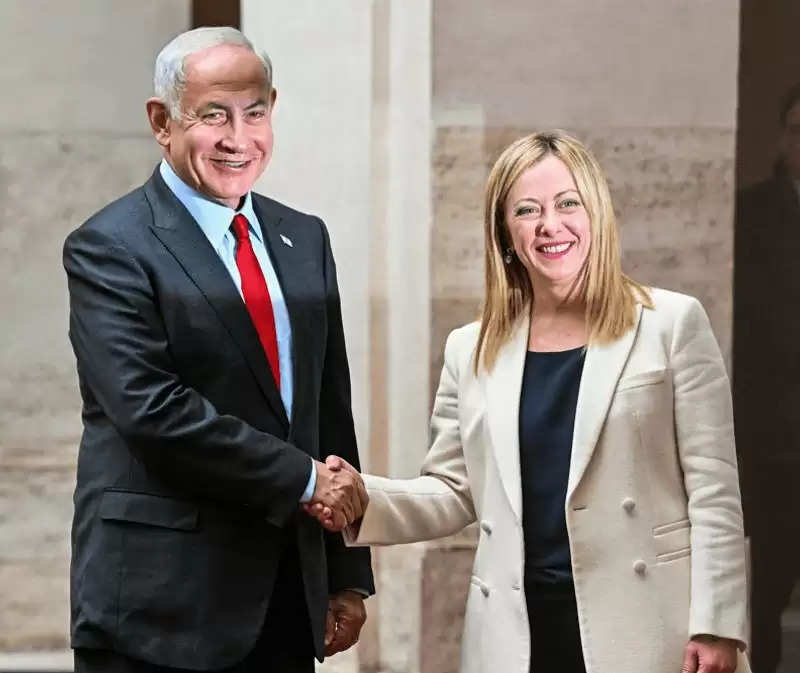Major Diplomatic Shift: Key Nations Abstain from UN Resolution on Israel's Occupation of Palestine

A number of countries, including the United Kingdom, Canada, Germany, Italy, India, Nepal, and Australia, decided not to vote on a resolution denouncing Israel's activities in Palestine, marking a dramatic turn of events at the UN. In addition to its text, the resolution's call for Israel to terminate its "unlawful presence" in the occupied territories attracted attention because of the geopolitical ramifications for the countries that abstained.
There was a noticeable difference in the views of other countries towards the Israeli-Palestinian dispute when the United States, an ally of Israel for a long time, voted in favour of the nation. The complicated web of diplomatic ties and interests reflected in the important countries' abstention raises concerns about the prospects of international agreement on matters pertaining to Israel and Palestine.

In order to draw attention to the continued difficulties that Palestinians suffer as a result of Israel's settlement practices and military presence in the occupied territories, a coalition of Arab countries and other supporters sponsored a resolution. Resolution supporters contend that the Israeli occupation defies international law and impedes regional peace initiatives. Nonetheless, the absence of support from powerful nations suggests that the dynamics of international backing for Palestine may change.
India has a long history of supporting the Palestinian cause, making their abstention all the more notable. A more nuanced diplomatic stance has resulted from India's developing defence, technology, and commerce connections with Israel in recent years. Experts speculate that India's choice to abstain from the vote rather than vote against Israel may reflect a desire to strike a balance in its relations with the Arab world and Israel, especially as it negotiates its own regional security issues.
Italy's and Nepal's abstentions also stem from larger political considerations. Nepal, which has historically supported Palestinian rights, might be considering its foreign policy in light of trade and economic aid. However, Italy's decision to abstain draws attention to how difficult it is for European countries to strike a balance between their diplomatic ties with Palestine and their historical obligations, particularly in light of the EU's internal disagreements over the matter.
Significant global actors Australia, the United Kingdom, Canada, and Germany abstained, further illustrating a fracture of consensus about the Israeli-Palestinian conflict. These countries have historically supported Palestinian rights as part of a bigger bloc, but given current geopolitical changes, their abstention may indicate a more circumspect stance.
Reactions to the vote's outcome have been divided. Israel views it as a diplomatic win that strengthens its standing on the global scene in the face of growing criticism of its policies in the West Bank and Gaza Strip. Given the continued threats from organisations like Hezbollah, Israeli officials have hailed the abstentions as evidence of the international community's growing acknowledgement of their security concerns.

On the other hand, many Palestinian sympathisers and advocates are shocked by the abstentions, especially as they had been hoping for a bigger worldwide backlash against Israeli policy. In reaction, groups such as Hezbollah have been especially outspoken, voicing dissatisfaction and demanding that regional alliances be reassessed in light of recent diplomatic manoeuvres.
The long-running dispute is still quite complicated as the world community considers the results of this referendum. The abstentions may herald a new era in Israeli-Palestinian relations in the international arena, one marked by greater pragmatism and realpolitik. In order to understand how these changes affect upcoming talks, peace initiatives, and the general dynamics in the Middle East, observers will be closely monitoring these developments.
The path forward is still unclear, but the fact that important countries chose not to support this resolution highlights how international diplomacy around one of the longest-running wars in history is changing. These crucial choices made on the international scene will continue to influence Israel's and Palestine's futures as countries reevaluate their stances.
--

